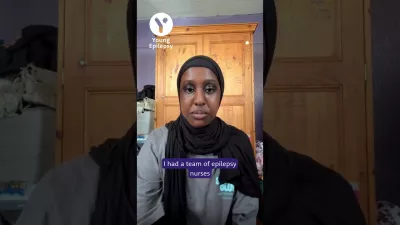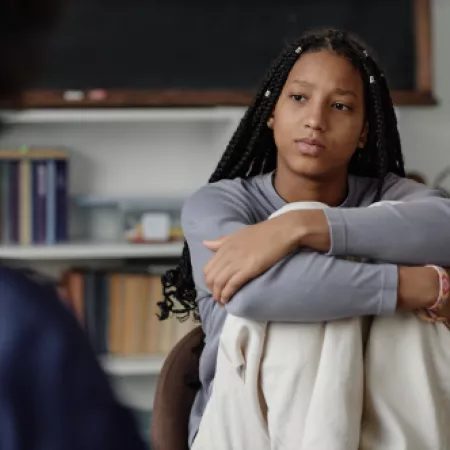Getting an epilepsy diagnosis can feel scary. You might have lots of questions and not enough answers. That’s normal. Here’s what you can expect and how to find support.
When you or someone you care about is first told they have epilepsy, it’s common to experience a whirlwind of emotions. The news might come as a shock, leaving you feeling overwhelmed, anxious, or even angry. Life can feel as though it’s changed overnight, and you may find yourself wondering what the future holds.
It’s important to remember that you’re not alone in this - many young people and their families go through similar feelings at the start.
This initial period can be filled with uncertainty, but there are ways to help you feel more in control. From understanding the condition and the steps to take next, to finding the right support networks and talking to those around you, there are practical things you can do to make the journey a little easier.
In this blog, we’ll walk you through the first stages following diagnosis, offer guidance on how to manage your feelings, and point you towards resources and people who can help. Together, we’ll explore how to adjust, ask questions, and work with your healthcare team to find the support you need.
Help children and young people newly diagnosed with epilepsy this Christmas
1. The first feelings
You might feel shocked, worried or even angry. Life can feel different overnight. Remember - you’re not alone. Many young people feel the same.
2. The limbo phase
This is the time between diagnosis and finding the right treatment. It can feel like you’re stuck waiting. You may wonder what happens next. It’s okay to feel uncertain. Support is out there - talk to your epilepsy nurse or doctor and check out our support options.
In fact, 38% of referrals to Young Epilepsy were received within 12 months of diagnosis, showing that families are actively seeking support during the most critical period of adjustment. We're reaching families when they need it most, but with your help, even more could benefit from early intervention.
3. Learning about epilepsy
Understanding your type of epilepsy helps you feel more in control. Ask questions at appointments. Write them down so you don’t forget.
4. Talking to school
Teachers need to know what epilepsy means for you. Ask about an Individual Healthcare Plan. It helps everyone know what to do if you have a seizure.
5. Medication starts
Finding the right medicine can take time. You might notice side effects. Tell your epilepsy nurse or doctor if something feels wrong. Stick to the plan - it helps keep seizures under control.
6. Changes at home
Your family might change routines for safety. Things like night-time checks or seizure plans can help everyone feel calmer.
7. Friends and social life
Some friends might not understand at first. Explain epilepsy in simple words. Share our page to help them learn.
8. Mental health matters
Feeling anxious or low is common. Talk to someone you trust. Young Epilepsy has information about mental health support - you’re not alone.
9. Finding your community
Join youth groups or online spaces like The Channel. Meeting others with epilepsy can make a big difference.
10. Looking ahead
Epilepsy doesn’t stop you from having dreams. Many young people achieve amazing things. Your goals are still possible.
Help children and young people newly diagnosed with epilepsy this Christmas






